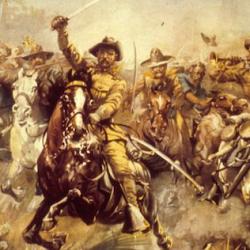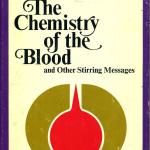Walter McDougall (Promised Land, Crusader State, 4–5) divides the history of American foreign affairs into two testaments, summarized by the two phrases of the title.
“Our Old Testament dominated the rhetoric and, for the most part, the practice of U.S. diplomacy from 1776 to the 1890s, and preached the doctrines of Liberty at home, Unilateralism abroad, an American System of states, and Expansion. These first four traditions were all about Being and Becoming, and were designed by the Founding Fathers to deny the outside world the chance to shape America’s future.”
Our New Testament dominated the twentieth century, preaching “the doctrines of Progressive Imperialism, Wilsonianism, Containment, and Global Meliorism, or the belief that America has a responsibility to nurture democracy and economy growth around the world.” Unlike the Old Testament, these “four traditions are all about Doing and Relating, and were designed to give America the chance to shape the outside world’s future.”
Writing in 1998, McDougall saw that the twenty-first century would see a clash. Already in the twentieth, the “New Testament, however much it derived form the Old, brought discord and danger as well as promise.” Its doctrines and traditions “were far less coherent, clashed with each other and with the received Old Testament Wisdom, and reflected an image of America not only as a Promised Land, but as a Crusader State called to save the world.” Throughout the century, we tried to be “good ‘Jews’ and good ‘Christian’—indeed several denominations of Christian—all at once!” The great question of the third century is, “can the United States be a Crusader State and still remain a Promised Land?”
Trump, a thoroughgoing “Jew,” has answered with a decisive No.













